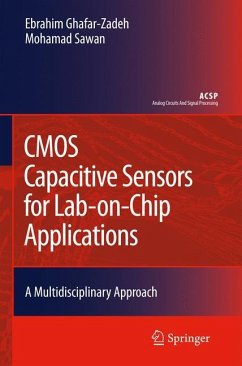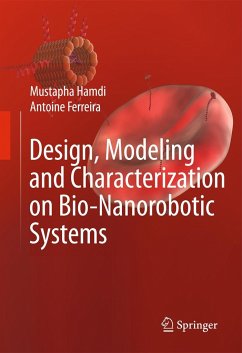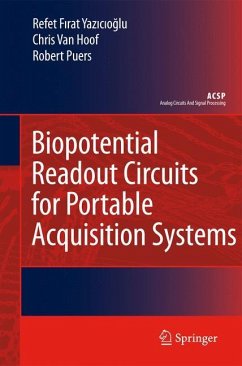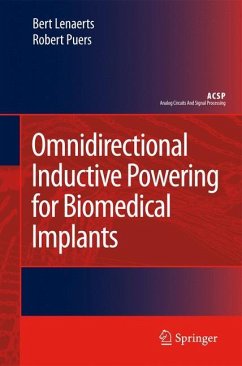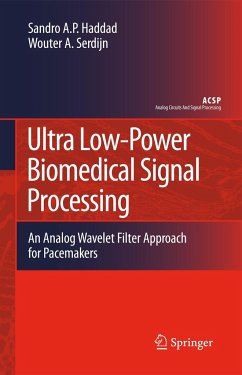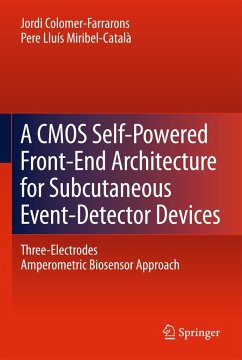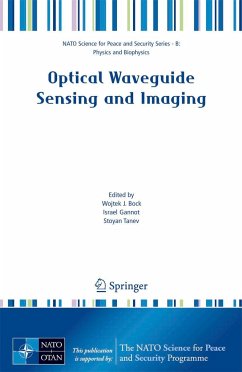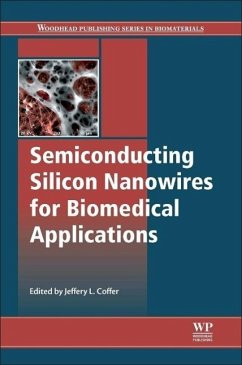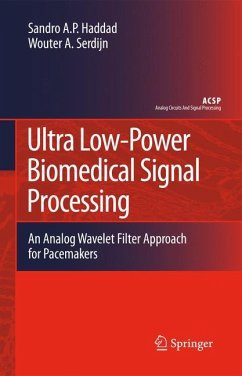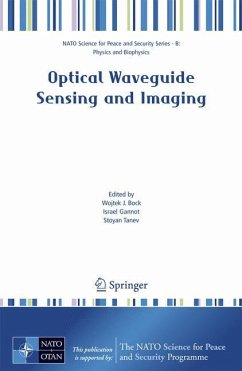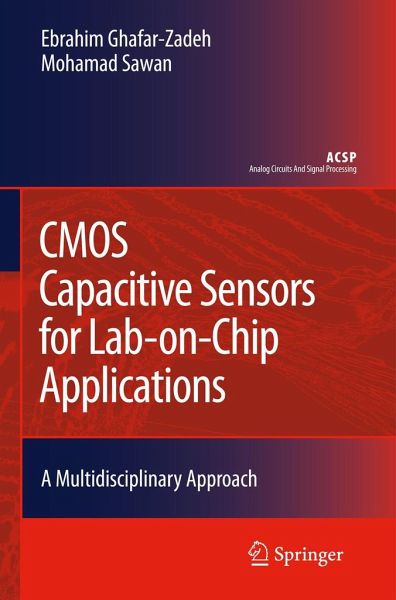
CMOS Capacitive Sensors for Lab-On-Chip Applications
A Multidisciplinary Approach
Versandkostenfrei!
Versandfertig in 6-10 Tagen
92,99 €
inkl. MwSt.
Weitere Ausgaben:

PAYBACK Punkte
46 °P sammeln!
This book describes all required components for the design of a CMOS capacitive biosensor. It extensively reviews recent literature on using CMOS processes for Lab-on-Chip applications and emphasizes practical aspects of fully-integrated capacitive biosensors.
1.1 Overview of Lab-on-Chip Laboratory-on-Chip (LoC) is a multidisciplinary approach used for the miniaturization, integration and automation of biological assays or procedures in analytical chemistry [1-3]. Biology and chemistry are experimental sciences that are continuing to evolve and develop new protocols. Each protocol offers step-by-step laboratory instructions, lists of the necessary equipments and required biological and/or chemical substances [4-7]. A biological or chemical laboratory contains various pieces of equipment used for performing such protocols and, as shown in Fig. 1.1, the engineering aspect of LoC design is aiming to embed all these components in a single chip for single-purpose applications. 1.1.1 Main Objectives of LoC Systems Several clear advantages of this technology over conventional approaches, including portability, full automation, ease of operation, low sample consumption and fast assays time, make LoC suitable for many applications including. 1.1.1.1 Highly Throughput Screening To conduct an experiment, a researcher fills a well with the required biological or chemical analytes and keeps the sample in an incubator for some time to allowing the sample to react properly. Afterwards, any changes can be observed using a microscope. In order to quickly conduct millions of biochemical or pharmacolo- cal tests, the researchers will require an automated highly throughput screening (HTS) [8], comprised of a large array of wells, liquid handling devices (e.g., mic- channel, micropump and microvalves [9-11]), a fully controllable incubator and an integrated sensor array, along with the appropriate readout system.




